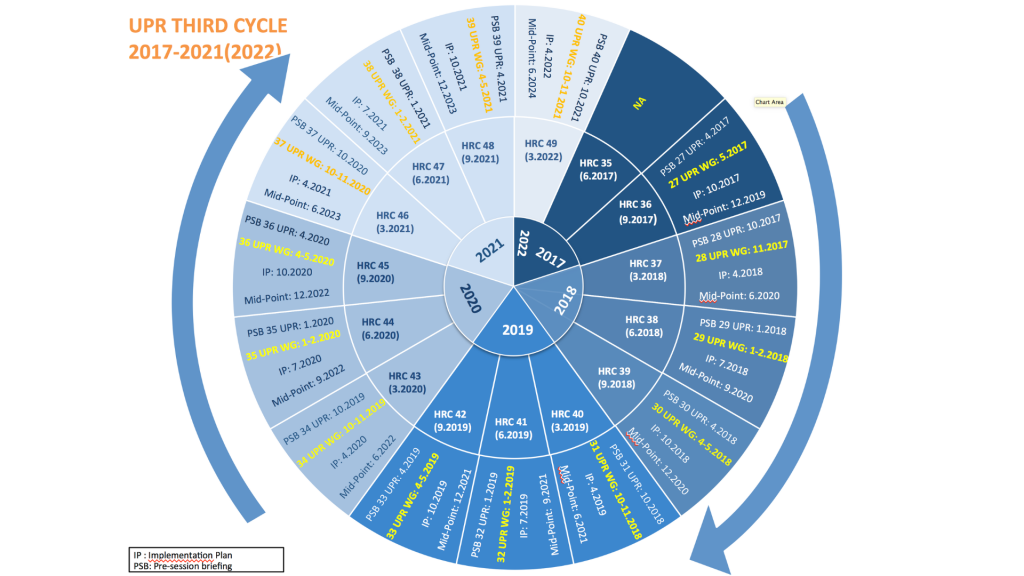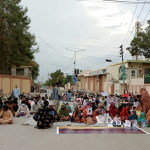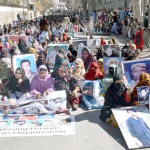Human Rights Council of Balochistan submits its report to the office of the UN High commissioner for Human Rights on forth cycle of Pakistan’s Universal Periodic Review, due in November 2022.
Summary:
This report will focus on Pakistan’s commitments during the state’s previous UPR in 2017 and provide detailed evidence, where the state has violated the conventions and its own commitments.
In particular, this report will focus on Pakistan’s commitments and subsequent conduct since 2017 with regard to the issues of enforced disappearances, extrajudicial killings, counter-terrorism, protections for the child, justice for victims of torture, the administration of justice and the right to a free and fair trial, the right to adequate standards of living, including health, education and social & economic rights, and the efficiency of national human rights mechanisms and judicial reforms.
This report finds that Pakistan has failed on multiple fronts to ensure compliance with its 2017 UPR commitments and overall observance of international fundamental rights obligations.
Report
- Pakistan has supported resolutions 131 and 152.132, regarding Enforced Disappearances and Extra Judicial Killings.
2. Instead of criminalizing enforced disappearance by legislation, the government introduced a bill that anyone who complained of cases of enforced disappearances against a national institution, i.e., the military, the applicant would be jailed and fined if he or she could not prove it. The bill has not yet passed, but the implementation of this additional clause is practiced throughout Balochistan. The state has filed cases of treason against those voicing against enforced disappearances (Annex no. 01).
- Instead of putting an end to enforced disappearances, the state’s military continued its same pace as the previous few years. We have received 2,725 incidents of enforced disappearances (See Annex no.2) and 973 cases of extrajudicial execution between January 2018 and March 2022 (See Annex no.3).
- Instead of investigating the cases of enforced disappearances and bringing the perpetrators to justice, the state institutions booked already disappeared persons into fake cases while shifting them to police custody. (See Annex no.4)
- The police’s Counter Terrorism Department (CTD) has killed 47 persons that were forcibly disappeared by security forces (See Annex no. 5)
- Pakistan has supported resolution 152.101 to protect children during counter-terrorism operations.
- Many children were killed by police and personnel of paramilitary forces during raids and shelling. Many children were abducted and forcibly disappeared as a policy of collective punishment for the region’s political activists and members of armed nationalist groups (See Annex no.6).
- Pakistan has supported resolution 152.134 to bring the perpetrators of torture to justice.
- State forces have abducted, disappeared, tortured and released 1,713 people from January 2018 to March 2022. None of the cases have been investigated by the state and no perpetrator was brought to justice (See Annex no.7).
- Pakistan has supported resolution 152.137 regarding the administration of justice and free and fair trial.
- Rashid Hussain of Balochistan was abducted in Dubai in December 2018. He was then deported to Pakistan. He has disappeared since then, in the custody of the military, as he was sent to a military airport in Pakistan. But, the court on the other hand declared him a fugitive. While he is in custody and he has not been given the right to a free and fair trial. (See Annex no.8)
- Pakistan supported resolution 152.197 regarding improving people’s right to an adequate standard of living, including health, education, and social and economic growth of the people.
- The Pakistan military has turned hundreds of public schools into military garrisons across Balochistan (See Annex 9).
- Balochistan’s students who pursue an education and career in other provinces of Pakistan, face racial profiling, harassment, and enforced disappearance by the military (See Annex no. 10).
Annexes:
- Annex no. 01. FIR against human rights campaigners
- Annex no. 02. Enforced Disappearance- Jan 2018 to March 2022
- Annex no. 03. Extra judicial executions- Jan 2018 to March 2022
- Annex no. 04. Fake cases against disappeared persons
- Annex no. 05. CTD’s fake encounters
- Annex no. 06. Children and youths targeted by forces
- Annex no. 07. Torture victims- Jan 2018 to March 2022
- Annex no. 08. Rashid Hussain
- Annex no. 09. Military turned educational institutions into camps
- Annex no. 10. Profiling of Baloch students in other provinces of Pakistan


